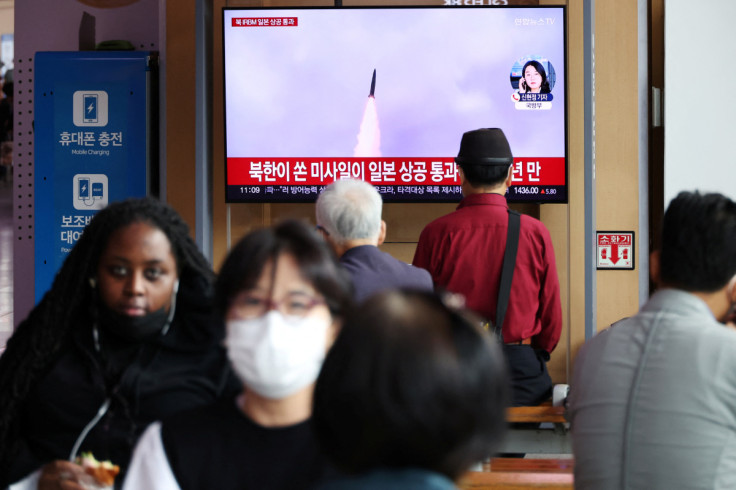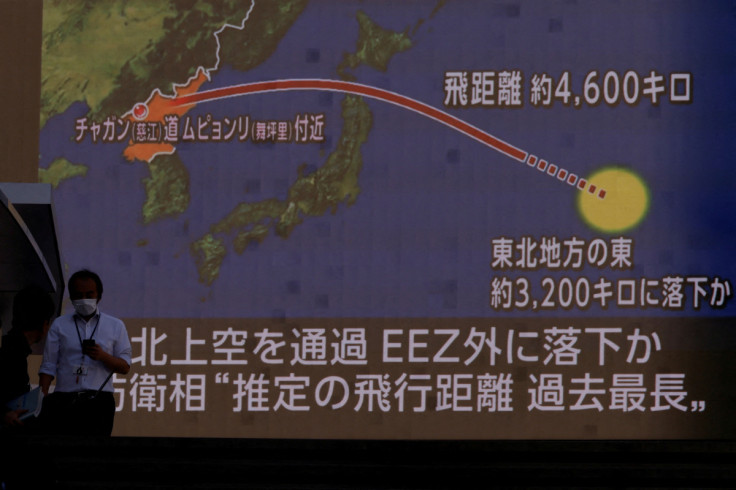Analysis-Plenty Of 'fire' But Less 'fury' As North Korea Tensions Rise Again

Between long-range missile launches and the looming prospect of new nuclear tests, this year has seen North Korea return to weapons activities not seen since the days of "fire and fury" in 2017.
A key difference: despite the "fire" from North Korea this time around, there has been far less concerted international "fury."
Analysts say the international response comes down to a number of factors, including U.S. President Joe Biden's low-key approach, a fracturing in cooperation between the United States and China and Russia, and a lack of agreement on the thorny question of how to change Pyongyang's behaviour.
"While there's still pretty broad political condemnation of North Korea's continued testing, there is neither agreement about how to respond to it nor the political will among the big powers to work together," said Jenny Town, director of the U.S.-based 38 North project.
North Korea paused its long-range missile launches and nuclear testing during its engagement with then-U.S. President Donald Trump, but those talks fell apart. This year, Pyongyang resumed firing its largest missiles and appears poised to detonate a nuclear device for the first time in five years.
Last month leader Kim Jong Un said an updated nuclear policy law means that denuclearisation talks will never be an option.
That means more sanctions are unlikely to dissuade North Korea from pursuing its banned weapons programmes, Town said.
"They have imposed costs on North Korea for their continued WMD development - but it seems a cost North Korea is willing to pay and can find partners who will work with them," she said.
FEW SIMPLE OPTIONS
In May, China and Russia vetoed a U.S.-led push to impose more United Nations sanctions on North Korea over its renewed missile launches, publicly splitting the U.N. Security Council (UNSC) for the first time since it started punishing Pyongyang in 2006.
This week Beijing and Moscow opposed a U.S. effort to even hold a public UNSC meeting on the latest launches, with Russia's envoy calling more sanctions "a dead end." The United States accused those countries of providing North Korea with "blanket protection."
That has left the United States and its partners to impose new unilateral sanctions, and resume major displays of military force, including deploying an aircraft carrier and staging missile drills.
Biden's aides have condemned the launches, but the president rarely raises the issue publicly.
Much of what Washington was doing in 2017 bears a close resemblance to the steps it is taking now: assurances to allies, displays of military capability, and warnings to North Korea, among other measures, said Evans Revere, a former U.S. diplomat.
"The problem, of course, is that the threat is now growing," he said. "This tells me that it is now necessary for the U.S. and its allies to lift their game."
Stephen Biegun, a top North Korea negotiator under Trump, said Pyongyang is unlikely to respond to the Biden administration's call for negotiations without preconditions, and in fact "hate" that kind of open-ended offer.
"They want an offer sheet. They don't want a negotiation," he said. "They want to know what the Biden administration is going to give them."
Analysts say Biden's muted responses may lower the chances of an inadvertent war, but some worry that North Korea feels emboldened.
"The situation is better and worse than 2017: better because we don't have a president who might want to try a limited preventive strike that could escalate quickly; worse because Kim Jong Un clearly thinks he has wide latitude to test and build up his diverse and increasingly capable nuclear weapons and missiles," said Patrick Cronin of the Hudson Institute.

© Copyright Thomson Reuters {{Year}}. All rights reserved.





















